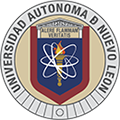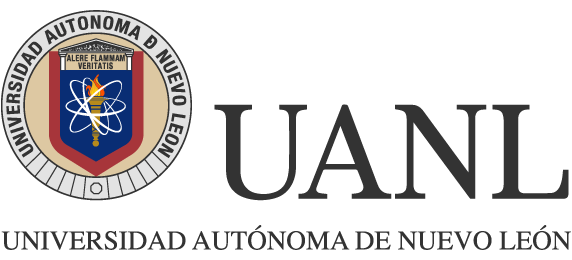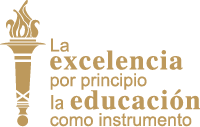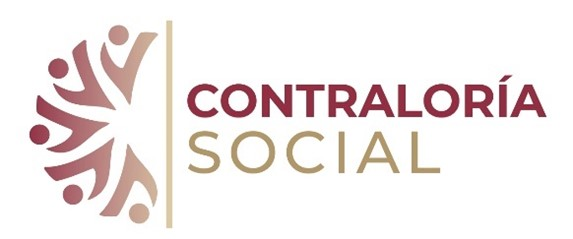Share:
Bachelor of Environmental Engineering
School of Chemistry
Admission profile
Applicants to the educational program should possess the following qualities:
- Solid knowledge in mathematics, physics, chemistry, and general culture.
- The ability to analyze and apply specific textual and graphic information.
- Effective communication skills, both orally and in writing.
- Logical-mathematical thinking to understand and interpret logical relationships and patterns.
- Reading comprehension skills for informative, argumentative, and narrative texts of medium complexity.
It is desirable for prospective students to exhibit the following characteristics:
- Teamwork and conflict resolution abilities.
- A responsible, positive, and tenacious attitude.
- An enterprising spirit.
Admission requirements
Academic
Have successfully completed high school or equivalent studies.
Legal
Meet all criteria established by UANL's current standards and procedures.
Testing
The student is required to take the entrance exam as established by UANL.
Program-specific
Once a student is selected, they will be required to complete the following:
Knowledge Exam
Propaedeutic Course
English Proficiency Test
Graduation profile
To educate Environmental Engineers, proficient in evaluating environmental impact and designing strategies to mitigate environmental pollution to implement eco-efficient processes across primary, secondary, and tertiary sectors. This education is carried out within the framework of both national and international legal standards while prioritizing safety and the work environment. We aim to produce professionals who excel globally as innovative, ethical, and socially responsible individuals, actively contributing to resolving the environmental challenges confronting contemporary society.
General skills
Instrumental Competencies
- Apply autonomous learning strategies across various levels and fields of knowledge, enabling timely and relevant decision-making in personal, academic, and professional domains.
- Utilize logical, formal, mathematical, iconic, verbal, and non-verbal languages appropriate to their life stage. This facilitates the comprehension, interpretation, and expression of ideas, emotions, theories, and prevailing schools of thought with an inclusive approach.
- Proficiently manage information and communication technologies as tools for accessing information and converting it into knowledge. These technologies also support learning and collaborative work through state-of-the-art techniques, enabling constructive participation in society.
- Proficiency in their mother tongue, both orally and in writing, with correctness, relevance, timeliness, and ethical communication. They adapt their message to the situation or context for the transmission of ideas and scientific findings.
- Utilize logical, critical, creative, and proactive thinking to analyze natural and social phenomena, enabling them to make relevant decisions within their sphere of influence while upholding social responsibility.
- Use a second language, preferably English, clearly and correctly to communicate effectively in everyday, academic, professional, and scientific contexts.
- Develop inter-, multi-, and transdisciplinary academic and professional proposals following the best global practices to foster and consolidate collaborative work.
- Employ traditional and cutting-edge research methods and techniques for the development of their academic work, the practice of their profession, and the generation of knowledge.
Personal and Social Interaction Competencies.
- Maintain an attitude of commitment and respect towards the diversity of social and cultural practices that reinforce the principle of integration in local, national, and international contexts. This fosters the promotion of peaceful coexistence environments.
- Actively intervene in addressing the challenges posed by contemporary society at both local and global levels. This intervention should be driven by a critical attitude and a humanistic, academic, and professional commitment aimed at contributing to the consolidation of general well-being and sustainable development.
- Embrace and practice the values promoted by UANL, including truth, equity, honesty, freedom, solidarity, respect for life and others, peace, respect for nature, integrity, ethical behavior, and justice. These values should be applied in both personal and professional environments, contributing to the construction of a sustainable society.
Integral competencies
- Construct innovative proposals grounded in a holistic understanding of reality. These proposals aim to contribute to addressing the challenges presented by the interdependent global environment.
- Assume leadership roles dedicated to addressing both social and professional needs, with a commitment to driving meaningful social change.
- Effectively resolve personal and social conflicts within the academic and professional environments, employing specific techniques to facilitate informed decision-making.
- Attain the adaptability required to navigate the uncertain social and professional landscapes of our time. This adaptability is essential for creating improved living conditions.
Specific skills
- Evaluate the environmental impact caused by industrial plants during their design, operation, and abandonment phases. This evaluation involves measuring environmental indicators to determine the consequences of their operation on the environment.
- Develop strategies for preventing environmental pollution and ensuring the efficient use of energy. These strategies should consider current legislation, environmental impact studies, and remediation technologies to mitigate the environmental impacts of industrial activities.
- Conduct environmental diagnostic studies using relevant methodologies to contribute to the remediation of contaminated sites, thereby addressing environmental damage.
- Manage industrial and service processes before the competent authorities to ensure their proper operation. This involves applying current environmental legislation, adhering to good operating practices, self-regulation, and corporate guidelines. Consideration of voluntary mechanisms and incentives is also essential for compliance.
- Evaluate the feasibility of projects, construction, or industrial activities by assessing sustainability indicators. Propose eco-efficient alternatives and methods for continuous improvement based on the evaluation results.
Labor market
| Areas | Jobs |
| Environmental Advisory Services | Conduct environmental impact assessment studies.
Evaluate, design, and propose eco-efficient industrial processes. Provide technical support for environmental remediation projects. Suggest procedures for Cleanup of contaminated sites. Evaluate environmental pollution prevention and control strategies. |
| Government institutions | Evaluate environmental impact studies.
Provide technical support for the granting of environmental permits and licenses. Provide technical support for the creation and updating of legislation. Manage environmental audit programs. Determine the feasibility of projects, works or activities considering sustainability indicators. |
| Research institutes | Conduct environmental impact assessment studies.
Design eco-efficient industrial processes. Provide technical support for environmental remediation and site abandonment projects. Conduct pollutant determination analysis. Provide technical support for the creation and updating of legislation. |
| Primary, secondary and tertiary sector industries. | Conduct environmental impact assessment studies.
Design and operate eco-efficient industrial processes. Ensure compliance with legal and corporate requirements, including voluntary mechanisms and incentives. Administer environmental and safety management systems. Manage, evaluate and interpret sampling and analysis programs for pollutant emissions. Implement environmental pollution prevention and control strategies and efficient energy use to mitigate environmental impacts. |
Graduation requirements
Academic
Complete and approve 241 credits including the mandatory learning service. The student may exceed the number of elective credits of the Integrative Professional Training Curricular Area.
Full-time student, at least 8 semesters and a maximum of 15 semesters.
Legal
Those established by UANL regulations and procedures in force; or others, if applicable.
Program-specific
Comply with the Seminar for professional performance.
Submit the graduation exam.
Proof of participation in the activities for the integral formation.
Proof to have developed or strengthened competency in a foreign language.
Location
Fecha de aprobación del H. Consejo Universitario
8 de junio de 2017.Posted by: Dirección del Sistema de Estudios de Licenciatura




